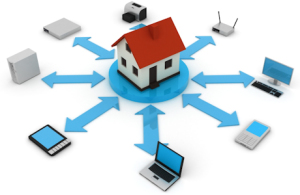 Irhma (the International Roundtable of Household Appliance Manufacturer Associations), 4E-Edna (Electronic devices and networks annex of the International energy agency’s energy efficient End-use equipment implementing agreement) and Korean Government agencies met in Korea to discuss network-connected appliances. Sales of network-connected (smart) appliances are increasing, driven by trends towards home automation and home energy management systems. These represent significant opportunities to reduce energy consumption, however it was recognised that the “energy cost” of appliance connectivity should not be ignored. This refers to the energy used by smart appliances to remain connected to a communications network.
Irhma (the International Roundtable of Household Appliance Manufacturer Associations), 4E-Edna (Electronic devices and networks annex of the International energy agency’s energy efficient End-use equipment implementing agreement) and Korean Government agencies met in Korea to discuss network-connected appliances. Sales of network-connected (smart) appliances are increasing, driven by trends towards home automation and home energy management systems. These represent significant opportunities to reduce energy consumption, however it was recognised that the “energy cost” of appliance connectivity should not be ignored. This refers to the energy used by smart appliances to remain connected to a communications network.
Seemingly, there are few technical barriers to manufacturing an appliance which uses minimal energy for network connectivity. Communications chipsets can emulate those of mobile phones, which use very little power in order to conserve battery life. However the challenges arise because of the sheer complexity of smart home systems and the desire to have all devices co-operating seamlessly. Furthermore, the business model for smart appliances is currently unclear and market participants are regularly entering this space – for example smart home platform providers.
The communications protocols, which allow appliances to connect and communicate, can also counteract energy efficiency. Many competing protocols exist and no global approach has been agreed. Irhma is currently investigating the suite of existing protocols, with a view to identifying which is best solution to harmonize different protocols to smart appliances. At the completion of this investigation it is hoped that an approach can be recommended.
As a result of the meeting, participants from Irhma and 4E-Edna pledged to work together to address the “energy cost” of appliance connectivity. It is expected that dialogue between the parties will continue, as part of the work stream on networked standby agreed by the G20.



